Explore the Best AI Image Gallery
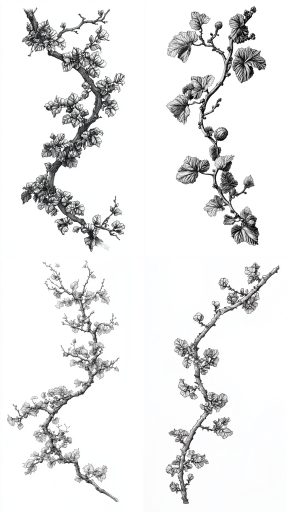
The Smart Home Revolution: Exploring IoT's Impact and Future Trends
In recent years, the Internet of Things (IoT) has emerged as a game-changer in the realm of smart homes. By connecting everyday devices to the internet, IoT technology is revolutionizing how we interact with our living spaces, enhancing convenience, efficiency, and security. The integration of IoT in smart homes has significant implications across various sectors, particularly the creative industry, ethical considerations, and future trends.
Understanding IoT in Smart Homes
IoT refers to the network of physical objects embedded with sensors and software that enable them to exchange data over the internet. In smart homes, this technology can include everything from smart thermostats and lighting systems to security cameras and appliances. The goal of IoT is to create an interconnected ecosystem that responds seamlessly to user needs.
Impact on the Creative Industry
The influence of IoT on the creative industry is profound. Here's how:
- Design and Architecture: IoT devices can offer architects real-time data about user behavior and preferences. This information allows them to design more personalized and efficient spaces, creating environments that enhance user experience.
- Art Installations: Artists increasingly incorporate IoT technology into their works. Interactive installations can engage audiences in novel ways, where sensors detect movement or respond to the viewer's touch, creating a dynamic relationship between art and observer.
- Smart Furniture: The rise of smart furniture—such as tables that adjust height based on user preferences—blurs the line between functionality and design. This creates new artistic opportunities and challenges for designers as they rethink traditional concepts of space and utility.
Potential Uses of IoT in Smart Homes
The potential applications of IoT technology in smart homes are extensive:
1. Energy Efficiency
Smart thermostats like Nest can learn user schedules and adjust heating and cooling accordingly, saving energy and reducing costs.
2. Enhanced Security
IoT-enabled security systems offer real-time surveillance and alerts, providing peace of mind for homeowners. Features may include motion detectors, door sensors, and remote camera access.
3. Personalized Home Automation
IoT allows homeowners to customize their environments—from adjusting lighting levels to integrating music systems, creating an atmosphere suited to individual tastes and activities.
4. Convenience
Smart appliances simplify daily chores; for example, smart refrigerators can keep track of grocery inventories, suggest recipes based on available ingredients, and even place grocery orders automatically.
Ethical Considerations
As with any emerging technology, the integration of IoT into our homes raises ethical concerns:
- Privacy: The collection of data from IoT devices can lead to potential breaches of privacy. Users need to be aware of who has access to their data and how it is used.
- Dependence on Technology: The growing reliance on smart devices could make users vulnerable to system failures or hacking.
- Digital Divide: As smart home technology progresses, disparities in access to this technology could widen social inequalities. Governments and companies must ensure equitable access.
Future Trends
The future of IoT in smart homes promises further innovation:
1. Increased Interoperability
The standardization of protocols will allow devices from different manufacturers to communicate more effectively, enhancing user experience.
2. AI Integration
As artificial intelligence technologies evolve, they will further enhance the capabilities of IoT devices, allowing for predictive adjustments based on user habits.
3. Sustainability
Future smart homes will likely focus on sustainability, utilizing eco-friendly materials and energy sources, while IoT will play a crucial role in optimizing resource consumption.
4. Enhanced User Control
As consumers become more aware of privacy issues, future IoT systems will likely emphasize user control over personal data, offering customizable privacy settings.
In conclusion, the IoT revolution in smart homes is reshaping how we live, work, and create. By harnessing the power of interconnected devices, we can achieve unprecedented levels of convenience and efficiency. However, it is essential to navigate the complex ethical landscape that accompanies such advancements. As we look to the future, the role of IoT in smart homes will undoubtedly continue to evolve, influencing not just our living spaces, but the very fabric of society and creativity itself.




](https://images.ai-img.art/thumbnails/150/3214e988d4008f30c5a037acca1b4351055bd6ec65df0884fcdccd09d46c748c.webp)


](https://images.ai-img.art/thumbnails/150/e30ebd22be803c7de05fcb5dd6652965dec130df7d6574e7ca3a8591dbce8f2a.webp)













](https://images.ai-img.art/thumbnails/150/eef24b73be7aff90887fa84e17197f8779e355efee60a78764ddc04a3c05ead1.webp)
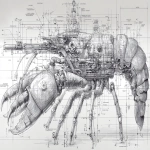
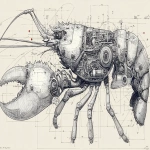




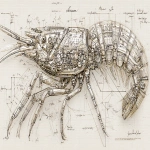

](https://images.ai-img.art/thumbnails/150/6b5ff04e6006f3b97dd36eaec548e34255713276a4bf8dc9fd72dc11b7313f39.webp)

](https://images.ai-img.art/thumbnails/150/de2c068895a12730e04e9ae6ff88098cad56c69fe790f7696fde12227d56450b.webp)
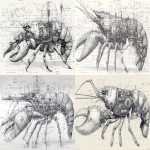



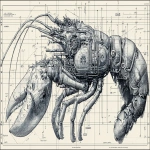



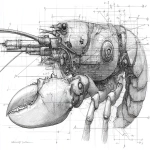

](https://images.ai-img.art/thumbnails/150/005584f3955a233f0b74db7d02caa6d62f861640781eac80962d9b1631f410d0.webp)


](https://images.ai-img.art/thumbnails/150/2d4ea5195083ca7b2d3b582e81252dd22f60af65e47d2869b902779447aef5b6.webp)


](https://images.ai-img.art/thumbnails/150/bce9cceb80b7d5238edfa28ed5e3a2be25fb5d8ca48c96f4d1a07205c5b15b4a.webp)